The road was narrow and winding, much like every other road we’d driven on in Scotland. A loch stretched out to our left while a mountain rose up on the right. And an annoying little navy Peugeot was riding our rear bumper. I scarcely noticed the beautiful scenery in my irritation at the tailgater and my attempts to get him to back off. Apparently, talking to (yelling at?) other drivers while you’re in your own car isn’t a very effective way to get them to change their behavior.
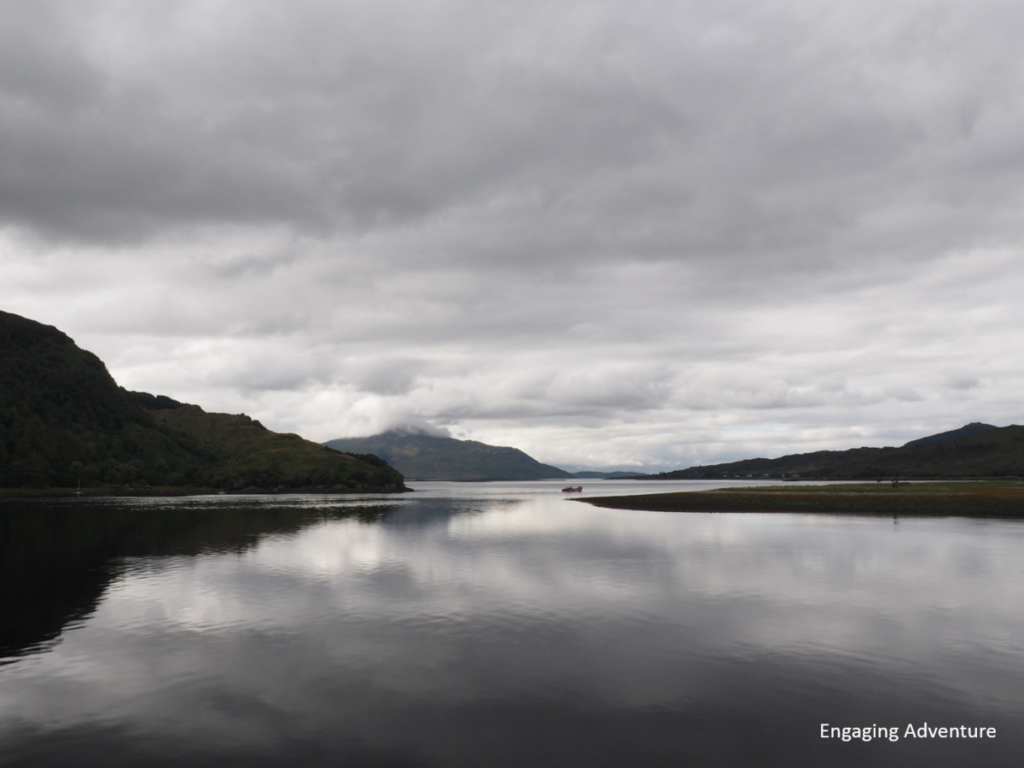
Through a break in the roadside foliage we caught a glimpse of our destination: a weathered stone fortress seemingly floating in the middle of the loch, the heavy clouds overhead giving it an ominous air. Soon we were leaving the tailgating Peugeot behind and turning into the parking lot of Eilean Donan castle. Having seen so many pictures of this castle, I felt a little like I was about to meet a celebrity on the red carpet.
When we arrived, the tide was out, exposing a massive carpet of orange-ish seaweed and muck around the island and the stone footbridge that connects it to the mainland. We all had our cameras out and began snapping photos well before we’d even made it to the visitors’ center to buy our tickets. With such a grand subject, it would be easy to stay all day and fill up and entire memory card with photos.
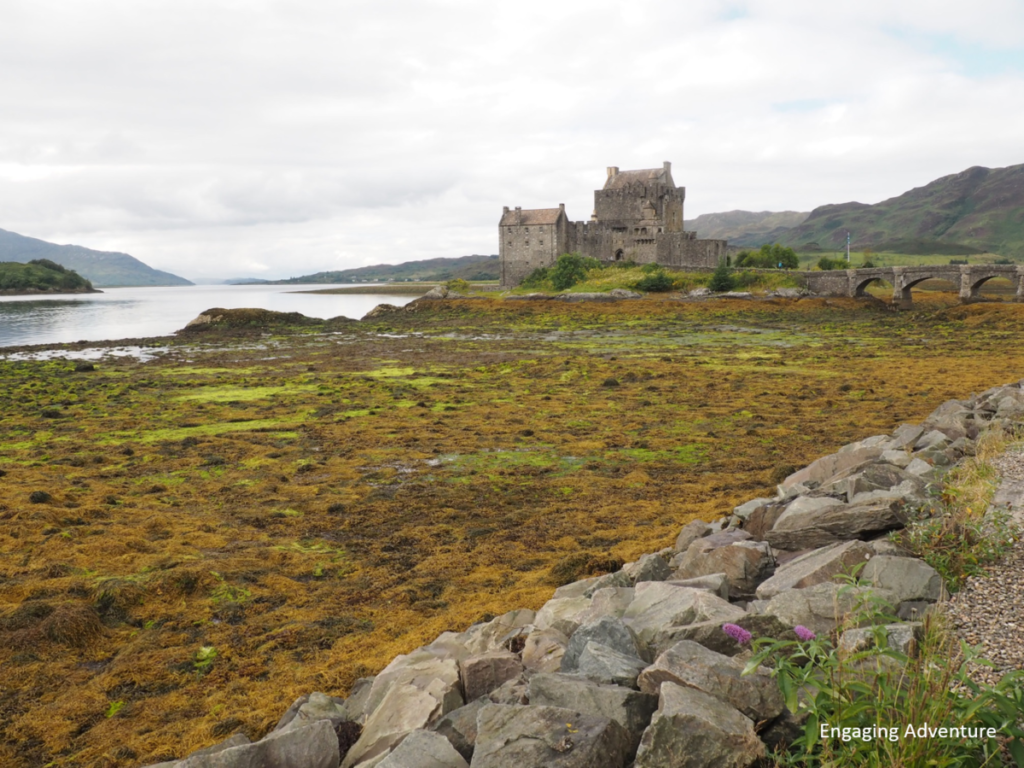
Stone & Sordid Stories
Eilean Donan is an iconic castle dating from the 13th century situated in the western Highlands of Scotland. You’ve likely seen photos of it and, if you’ve ever driven to the Isle of Skye, you probably passed it on your way.
The castle sits on a small tidal island strategically located at the confluence of three lochs: Loch Duich, Loch Long and Loch Alsh. It featured prominently in the movie The Highlander and has been the backdrop for many other films and television programs as well. It’s a photographic castle, able to look both majestic and forlorn, in a very picturesque setting, surrounded by water and low, rolling mountains.
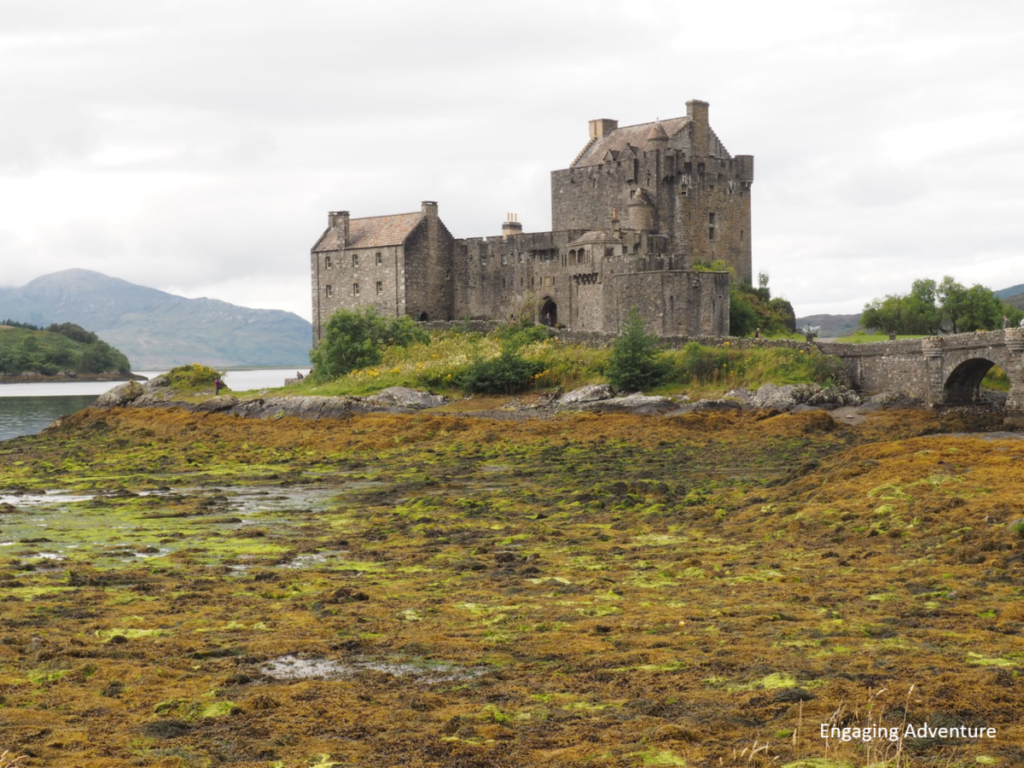
The island is thought to have been originally inhabited by an Irish priest or bishop, Donnan of Eigg, who founded a small religious colony here in the late 5th or early 6th century. He and 52 of his monks were later martyred on the isle of Eigg. The castle, which has a storied, bloody history, was constructed in its earliest form to the early 13th century. It grew over time and later became a stronghold for the Clan Mackenzie and their allies, the Clan Macrae, before falling into ruins in the 18th century.
The current structure is actually an early 20th-century reconstruction of the 18th-century castle, completed by a descendant of Clan Macrae. He wanted to restore this long-time family home to its original glory, thinking it a shame that it had fallen into ruins. Read more about it here.
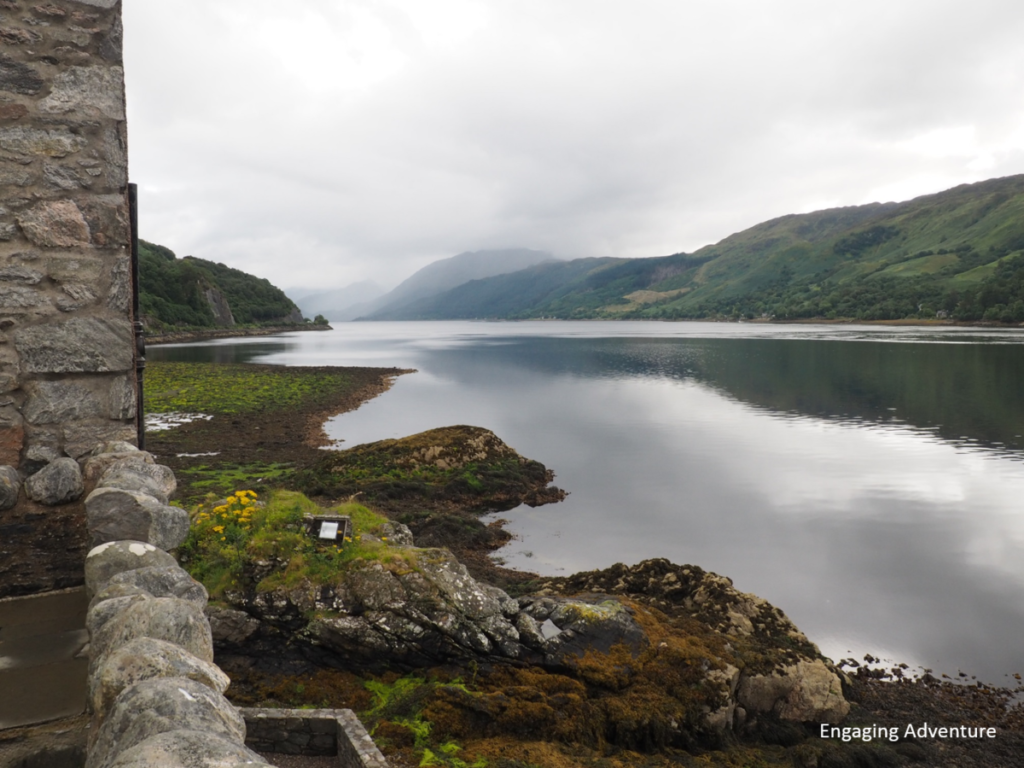
The gently curving footbridge that leads to Eilean Donan Castle sets the scene for the solid and imposing collection of buildings on the other end. Back in the day, visitors had to row out to the castle, which kept watch over the surrounding territory against Norse invaders. One story tells of a local noble or magistrate of some sort coming to the castle and seeing heads displayed on pikes around its perimeter. Apparently the visitor was a stickler for rules and punishment and said that the sight of all those severed heads and the justice they represented warmed his heart.
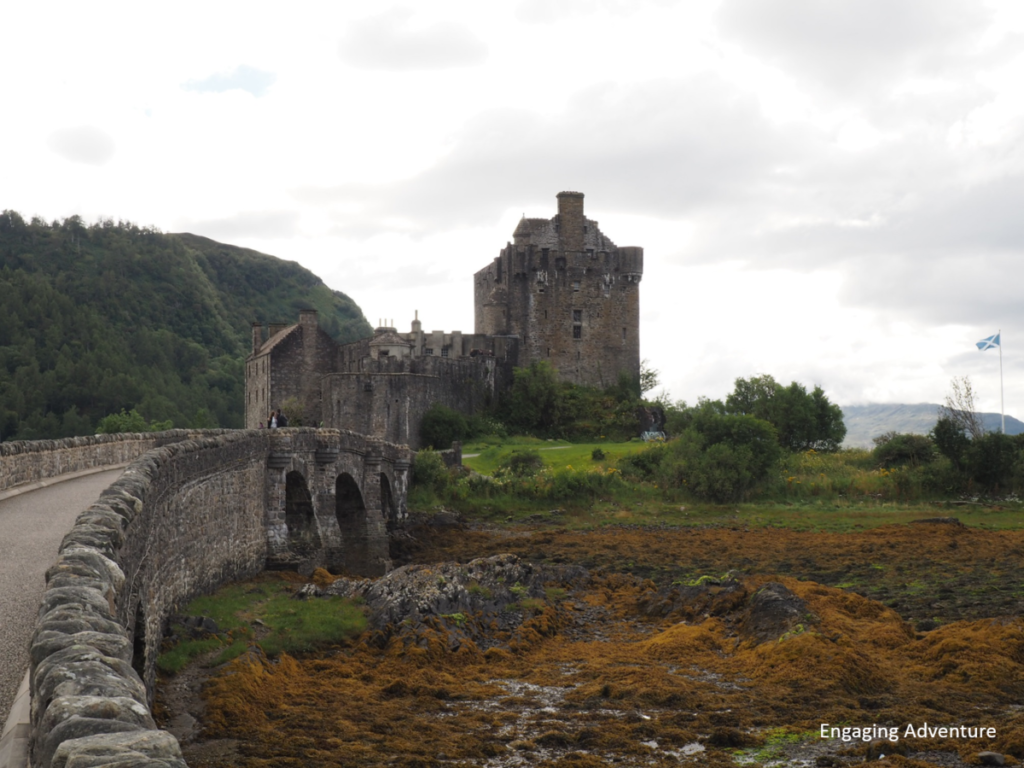
Although Eilean Donan Castle looks on the outside much like it did 300 years ago, the interior was somewhat modernized during the reconstruction—adding electricity and plumbing, for example—leaving me disappointed with its somewhat tacky finishes compared to the classic, impressive exterior. Nevertheless, it’s still full of interesting nooks and crannies.
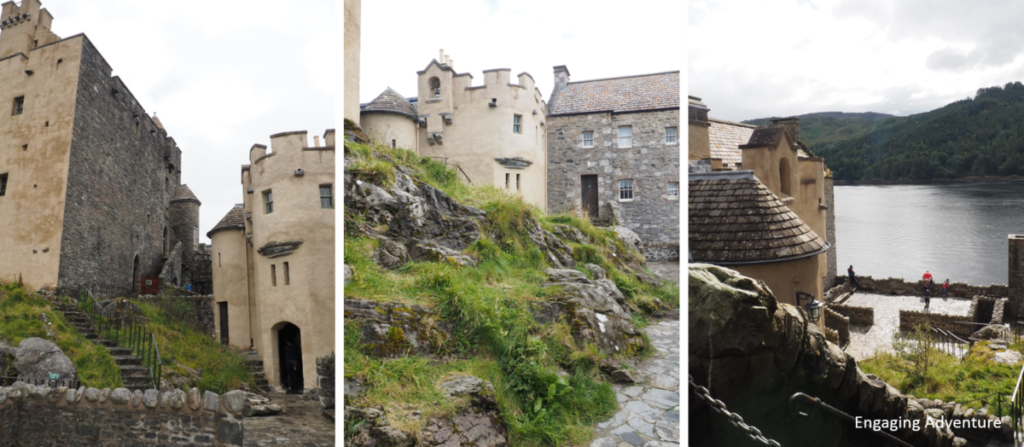
As I toured the structure and its rocky courtyard, I tried to imagine what it must have been like to live there hundreds of years ago. Candlelight and fetching water from the well, catching fish to eat, the daily threat of attack, the cold damp Highlands winters. As elegant as the castle looks to us nowadays, living there must have been a harsh existence.
No pictures are allowed inside the buildings but I did get some shots of the castle complex from the ramshackle courtyard and this particularly Gothic-looking image of the main entrance gate. It is quite an impressive structure!
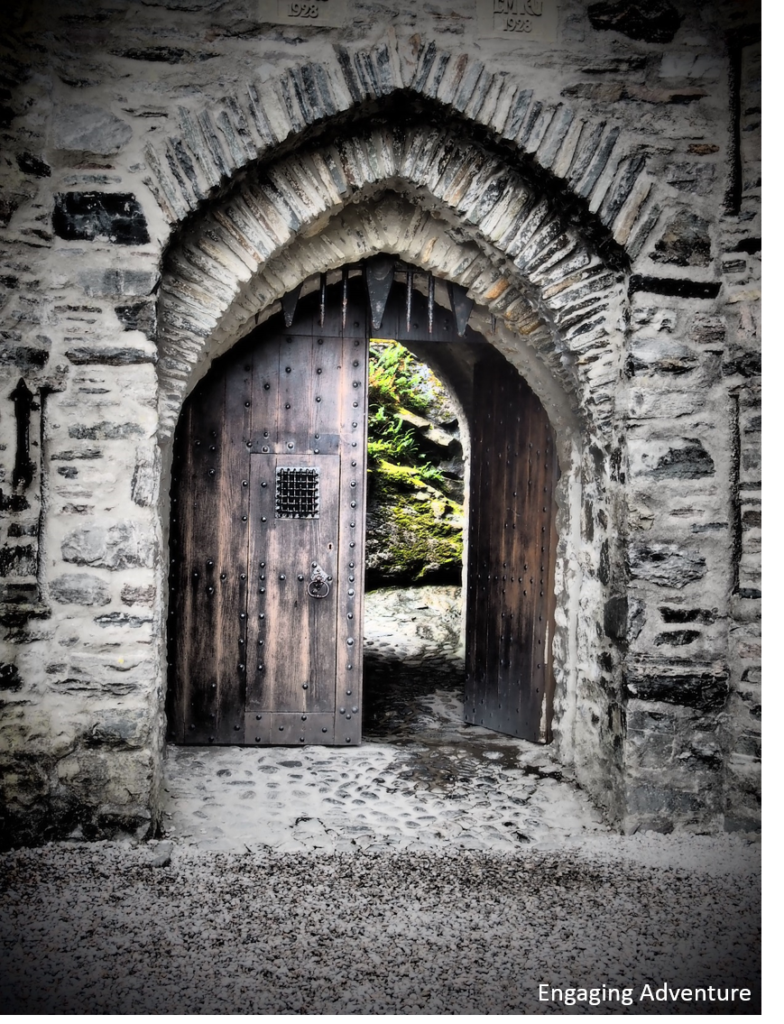
After exploring as much as we were allowed and taken more than enough photos to satisfy our memories, we piled into the car, pulled back onto the narrow, winding road, and continued our journey through history, stone, craggy peaks, and glacial lochs that make the Scottish highlands so special.
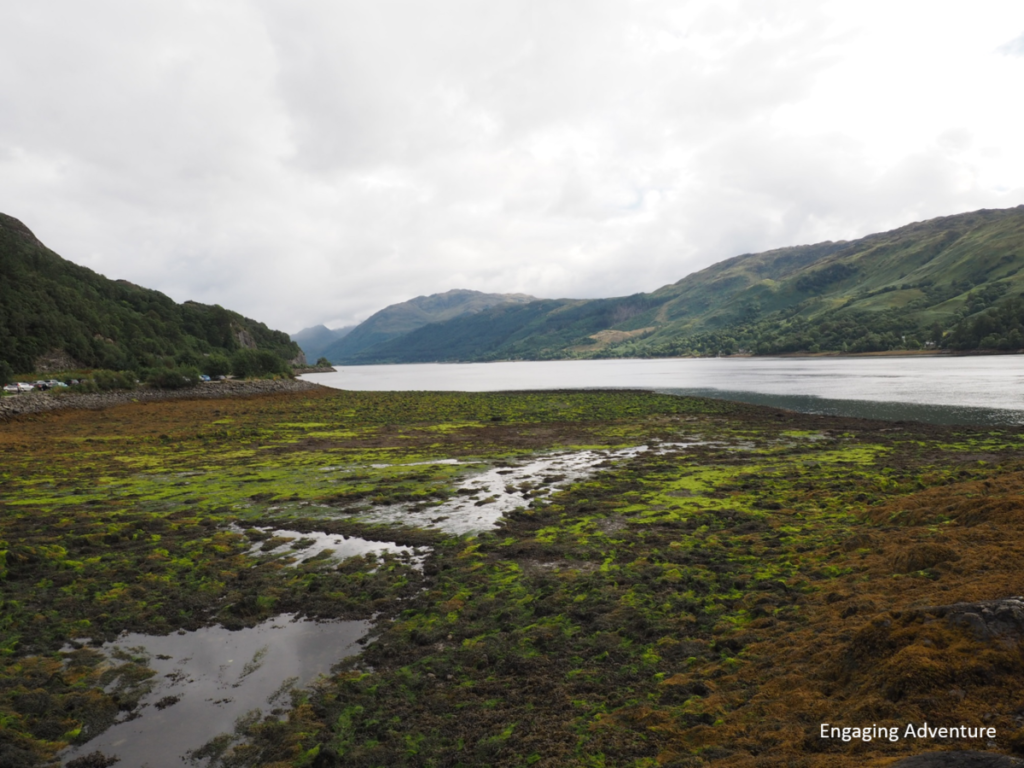


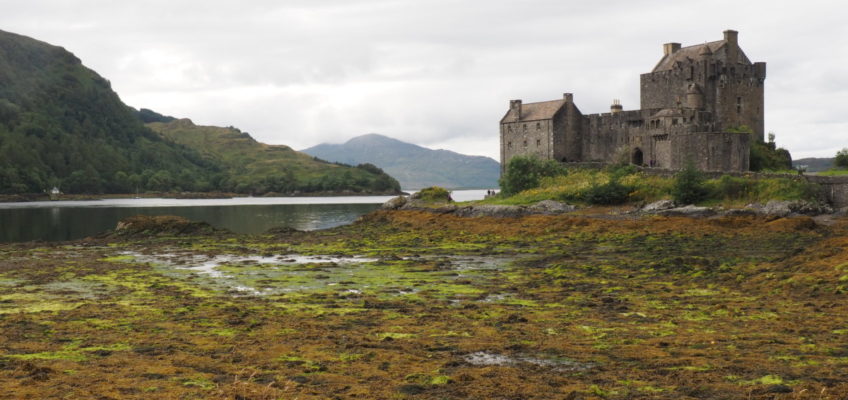




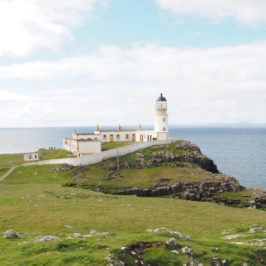
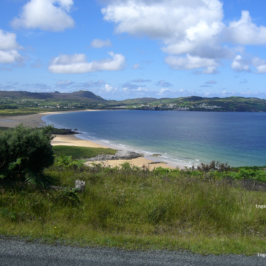
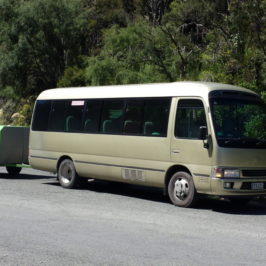
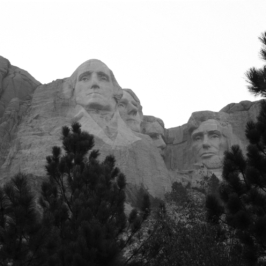
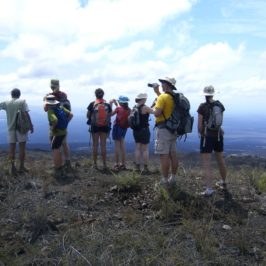
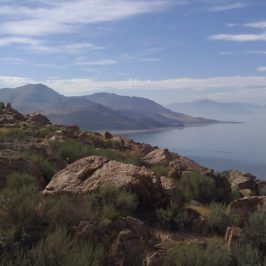
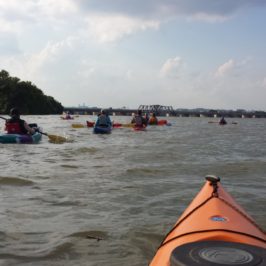
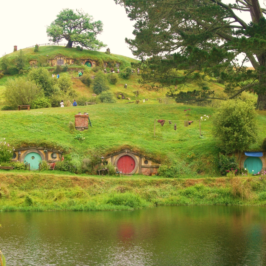
Leave a Reply